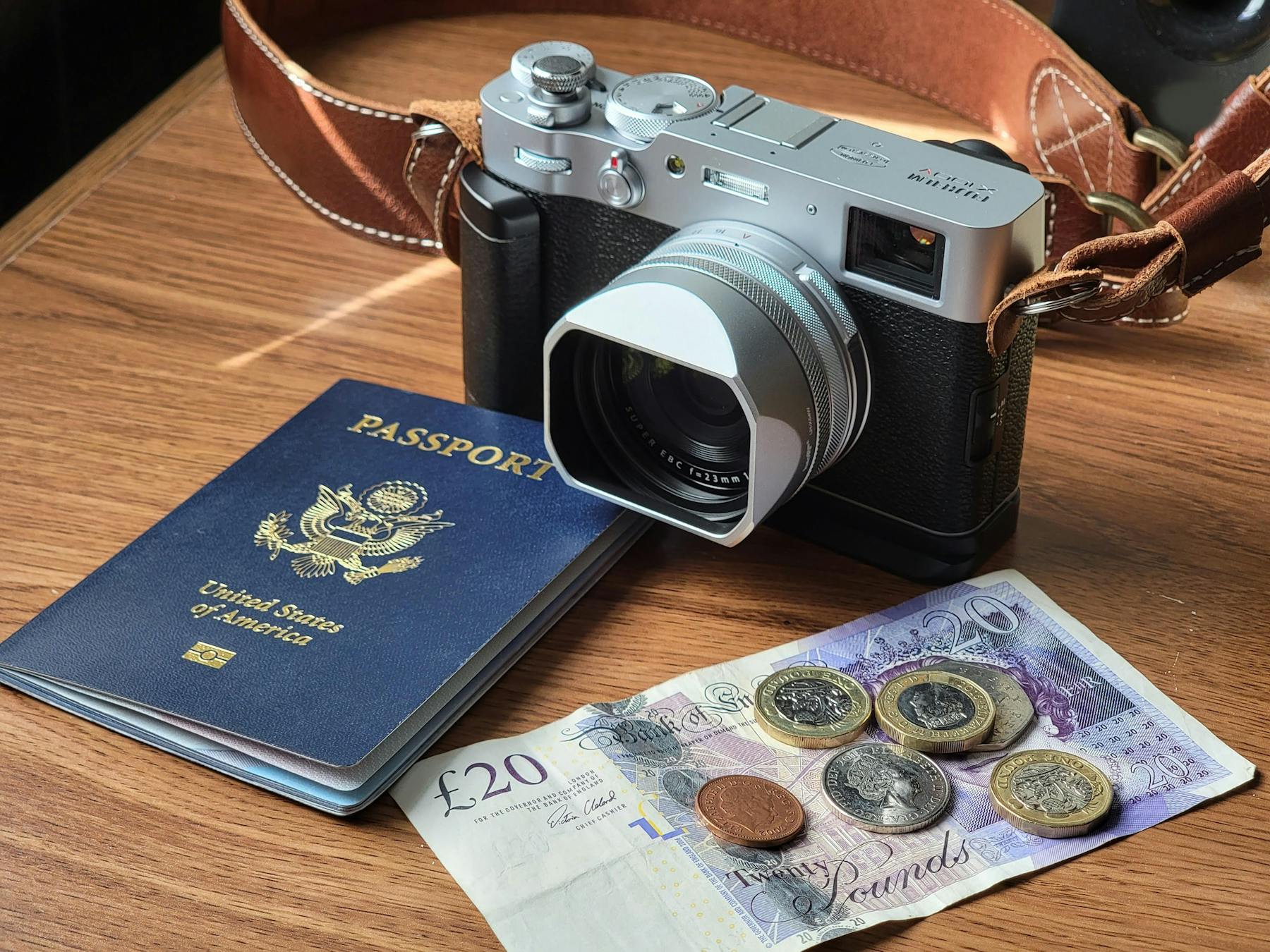 Benjamin White
Benjamin White Local Currency in Germany: Can You Use US Dollars in Germany?

Jarrod Suda
Guide

A writer and editor at Monito, Jarrod is passionate about helping people apply today’s powerful finance technologies to their lives. He brings his background in international affairs and his experiences living in Japan to provide readers with comprehensive information that also acknowledges the local context.
Links on this page, including products and brands featured on ‘Sponsored’ content, may earn us an affiliate commission. This does not affect the opinions and recommendations of our editors.
Read moreIf you're visiting Germany for the first time, you may be curious about the accepted currency and what currency you should bring along on your travels. In Germany, the official currency is the Euro (EUR), which we recommend obtaining by using Wise's travel debit card to withdraw cash from local ATMs.
Using the local currency for your transactions is best when paying for goods and services. At the same time, some establishments in Germany (like hotels) may accept US dollars, be aware that they will set their own exchange rates between the Euro and the US dollar. This will result in unfavorable prices for you as a US patron.
In this guide, we walk through using US dollars in Germany, how to get Euros cheaply with Wise, and why it's more beneficial for you to use the local currency for your transactions to ensure fair and accurate pricing. Let's get started!
Exchange and hold over 50 currencies, including US dollars, with Wise's multi-currency account. Wise's exchange rate is an industry low compared to the real exchange rate, with only extremely small fees being charged for each currency conversion. | Read our Wise review.
Does Germany Accept U.S. Dollars?
Establishments in Germany do not accept U.S. dollars as a form of payment. You will need German currency for cash transactions in Germany. In places that do accept physical U.S. dollars, such as hotels, using them may result in very unfavorable exchange rates or additional fees.
Which Currency Is Best to Take to Germany?
If you have a debit or credit card that does not charge international card transaction fees, then your best option is to simply pay by card throughout your trip. Credit card processors (such as Mastercard, VISA, and American Express) use their own exchange rates, but they are typically very close to the mid-market exchange rate (usually around 0.5% to 0.9% weaker). You can check Mastercard's exchange rates here and check VISA here.
If you want to avoid losing out to those small exchange rate margins, then the best currency to take to Germany is Euros (EUR), as it is the official currency and fully accepted throughout the country. Having German currency ensures smooth transactions and eliminates the need for frequent currency conversions.
What Currency Does Germany Use?
Germany uses the Euro as its official currency. It is the primary medium of exchange in Germany, accepted for all types of transactions. The European Central Bank is the central bank that issues the local currency.
What Is the German Currency Symbol?
The German currency symbol is the sign, €. It is used to represent the Euro (EUR).
Some write the symbol (EUR), with the symbol and value written as follows: 10.99 EUR.
Using and Exchanging Currency in Germany
The most expensive currency exchange services occur at banks, currency exchange kiosks, and some hotels or airports. We have seen exchange rate margins as high as 10% at airports and with PayPal.
This is why we recommend travel cards like Wise, which give you access to multi-currency accounts. Exchange USD to EUR at or near the real mid-market exchange rate, and get access to those Euros in your digital wallet instantly. Then, use your debit card to withdraw from a German ATM. Best of all, Wise is completely free to sign up.
Where Can I Buy German Currency?
With Wise, you can exchange foreign currency, including USD to EUR with currency conversion costs of 0.5% or lower.
Wise's multi-currency account makes converting your US dollar balances to Euro balances instantaneous — and at industry-low rates. The free ATM withdrawal allowance with Wise is 200 EUR.
Read our full Wise review to learn more.
Potential Bank Fees
You may experience expensive and un-transparent German currency exchange at banks, currency exchange kiosks, and other foreign exchange dealers in touristic or downtown areas. We highly discourage you from using these options, if possible.
Banks and currency exchange services often charge higher fees than Wise. Furthermore, these companies often apply very weak exchange rates on your conversions and pocket the difference as profit. Some providers may advertise their services as "fee-free," but very often fail to disclose the hidden exchange rate margin fee (which averages at 4% to 7+%).
Is It Better to Exchange Money in Germany?
Rates at brick-and-mortar establishments will often be high, regardless of whether you're in Germany or the US. To minimize costs, consider ordering currency from your US bank days in advance and compare their rates to the mid-market exchange rate (You can find the real mid-market exchange rate on Google, XE.com, or Monito). Pay attention to the margin they charge, aiming for a rate that is well below 4%.
On the other hand, using a digital platform like Wise gives you the flexibility to exchange currency at any time, benefiting from transparent and industry-low rates that are consistently displayed before the transaction. This allows you to make informed decisions based on the current exchange rate.
ATMs and Local Payment Methods in Germany
Using ATMs abroad is often the most cost-effective way to obtain cash while traveling, especially when utilising cards like Wise. One of the reasons is that the withdrawal fees associated with ATMs are typically minimal, around $1 or $2, or even waived entirely if you choose the right ATM or bank.
Additionally, ATMs treat you like a local if you use a travel card like Wise (they don't apply currency exchange altogether). Otherwise, ATMs will use the exchange rate used by your card issuer (MasterCard, Visa, etc). In contrast, airport kiosks tend to have significantly weaker exchange rates, sometimes up to 10% weaker.
Are the ATMs in Germany Safe to Use?
ATMs in Germany are generally safe to use. However, it's best to use ATMs that are attached to a bank rather than a machine standing on its own. Some stand-alone ATMs, especially those in touristic areas, have been known to apply weak exchange rates on your US dollars before withdrawing. This is called a dynamic currency conversion.
Dynamic currency conversion is a process where you're given the option to pay for a purchase or transaction in your home currency instead of the local currency. It may sound convenient, but it often comes with additional fees and unfavorable exchange rates. It's like a middleman converting the currency for you, but they charge you more for the service.
The Bottom Line: Always decline dynamic currency conversions and pay in the local currency to avoid unnecessary costs (i.e. USD in the US, EUR in Germany, etc).
We go in-depth into dynamic currency conversions and how they work in this article.
Where Are the Best Places to Find ATMs in Germany?
Here is a list of the best places to find reliable ATMs in Germany:
- Local bank ATMs: Go for ATMs operated by local banks for lower fees and better exchange rates compared to standalone or third-party ATMs.
- Global ATM Alliance: Deutsche Bank, one of the major German banks, is a member of the Global ATM Alliance. If you hold an account with an Alliance member, you can access Deutsche Bank's ATMs without incurring any ATM fees.
- Avoid airport and tourist areas: ATMs in airports or popular tourist spots often have higher fees and unfavorable rates.
Places You'll Need German Currency
While credit and debit cards are widely accepted, you may be in need of cash at small businesses, markets, street vendors, public transportation fares, and some rural areas in Germany.
Do the Restaurants in Germany Accept Debit or Credit Cards?
Most restaurants in Germany accept debit and credit cards for payment. It's common for establishments to display logos indicating the types of cards they accept, such as Visa and Mastercard. However, it's always a good idea to carry some cash, as smaller or independent establishments may have cash-only policies.
As a travel tip, know that tipping in Germany is neither mandatory nor expected although a 5-10% tip is appreciated. You can always say "Stimmt so" (shtimt so), which is understood as "keep the change."
Frequently Asked Questions About Using US Dollars in Germany
Can I use US dollars in Germany?
No, establishments in Germany do not accept U.S. dollars as a form of payment.
What is the best currency to bring to Germany?
You will need Euros, which you may instantly and digitally exchange for by using Revolut's multi-currency account.
What is the official currency in Germany?
The Euro (EUR) is the official currency of Germany.
What is the symbol for German currency?
The Euro is often denoted with the following symbol: €.
How can I exchange currency in Germany?
Exchange currency instantly with Revolut. You may also withdraw cash from ATMs. Bank currency exchange and airport kiosks will be the most expensive method to exchange currency in Germany.
Where can I buy German currency?
We recommend that you exchange currency instantly with Revolut or get Euros in cash at local ATMs.
What are the bank fees for foreign exchange in Germany?
Expect exchange rate margins of between 4% to 7% for foreign exchange at traditional German banks.
Is it better to exchange money in Germany?
Brick-and-mortar money exchange will be expensive regardless of if you exchange in the United States or in Germany. We recommend Revolut to help you avoid fees and inconvenient brick-and-mortar exchange.
Are ATMs in Germany safe?
ATMs in Germany are generally safe to use. However, it's best to consider using ATMs that are attached to a bank rather than a machine standing on its own.
Do German restaurants accept debit or credit cards?
Yes, most restaurants in Germany accept debit and credit cards for payment.
Other Guides On Travel Money, US Dollars, and Euros
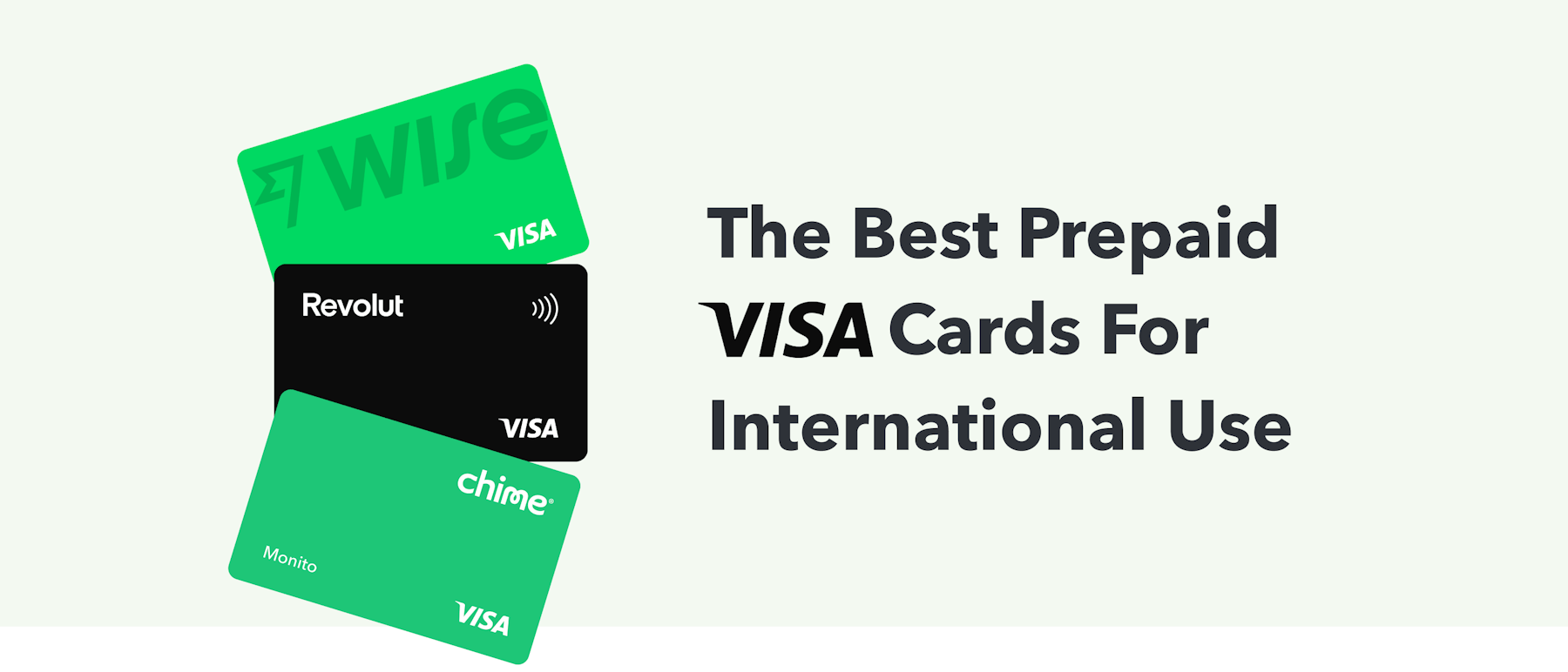

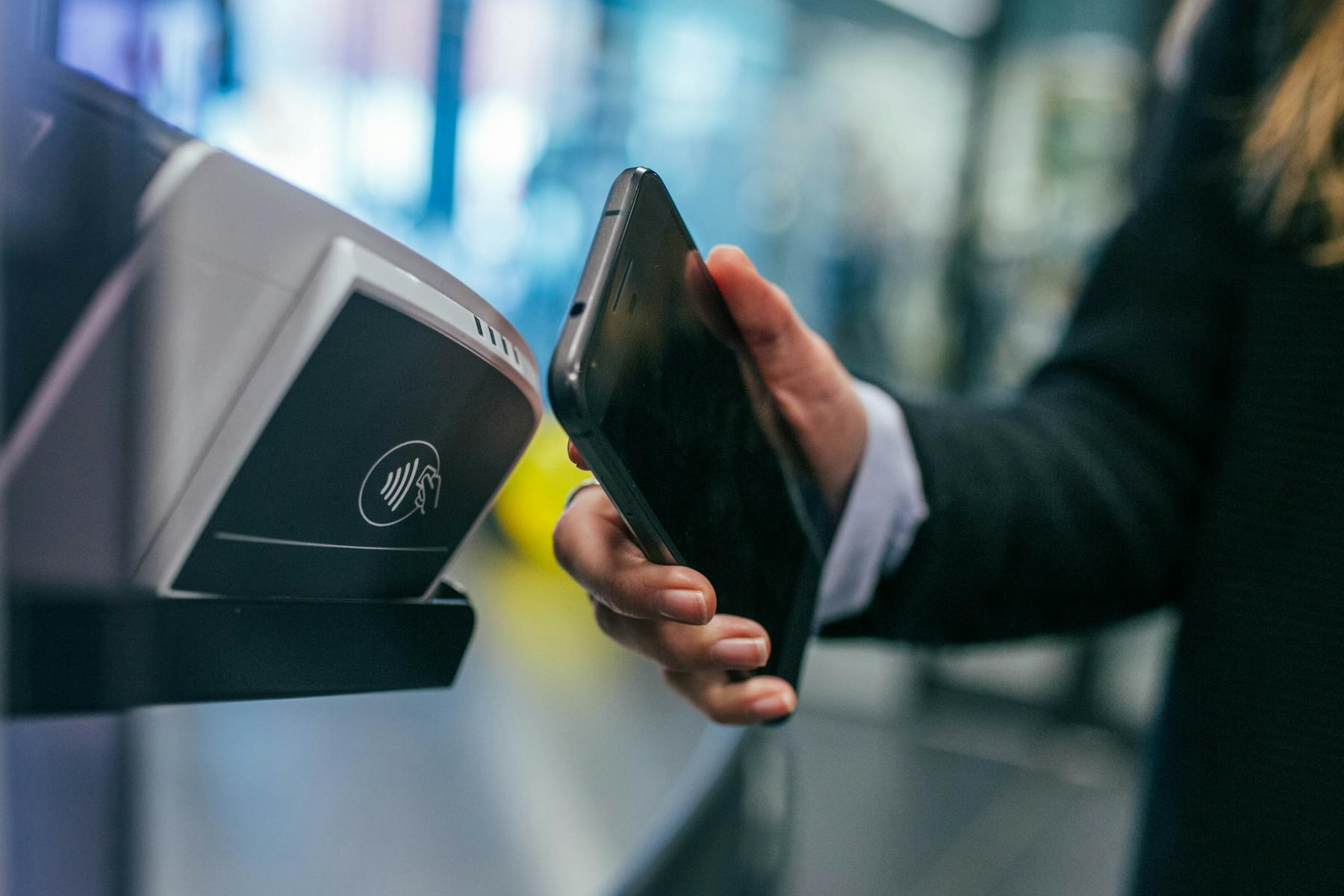



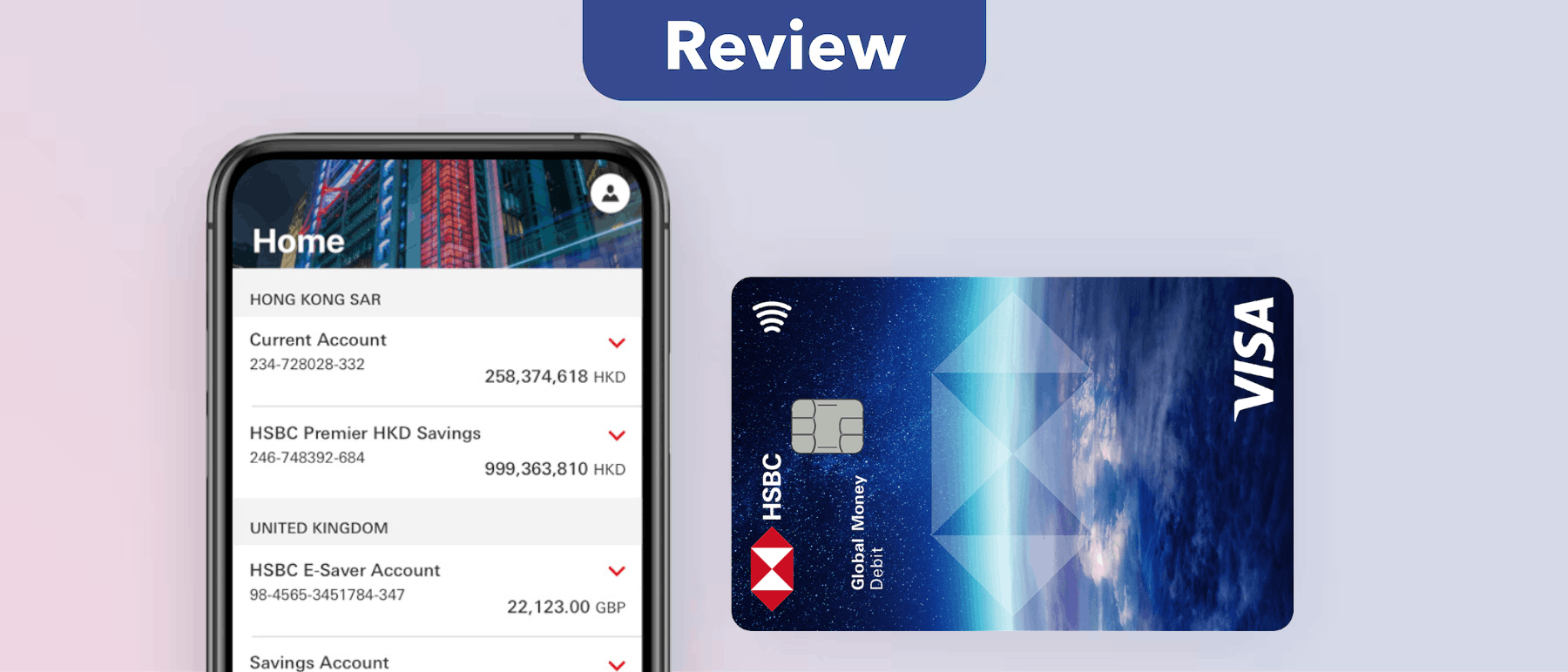
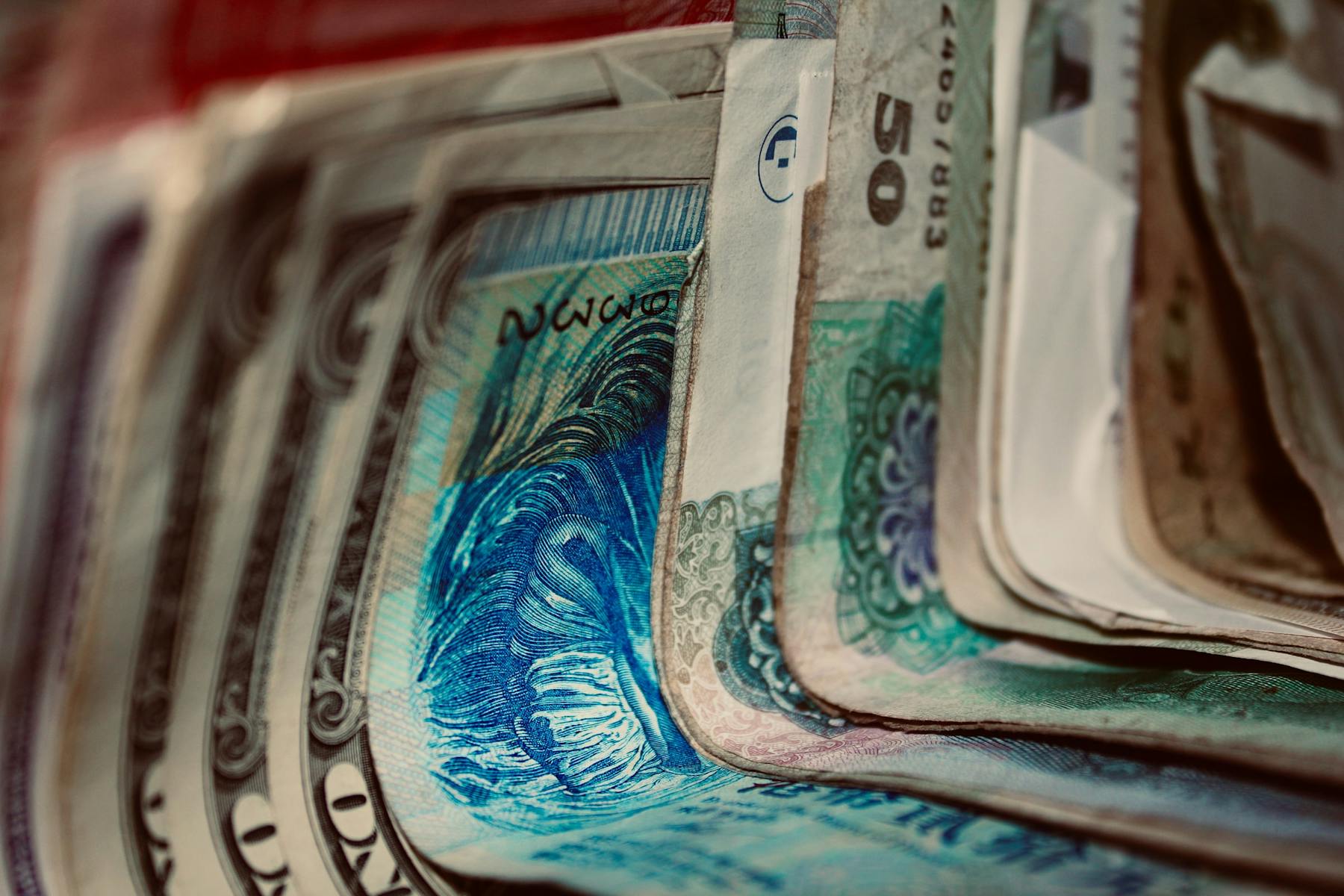
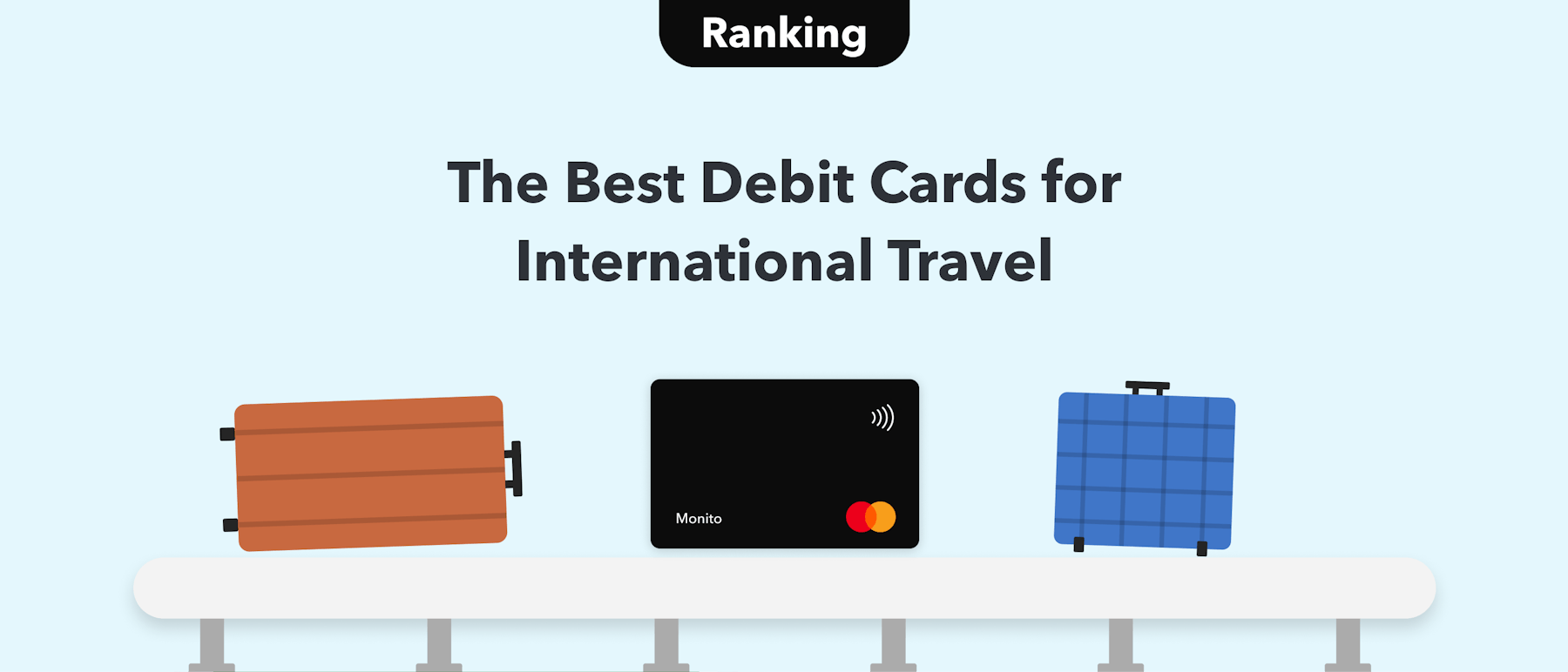
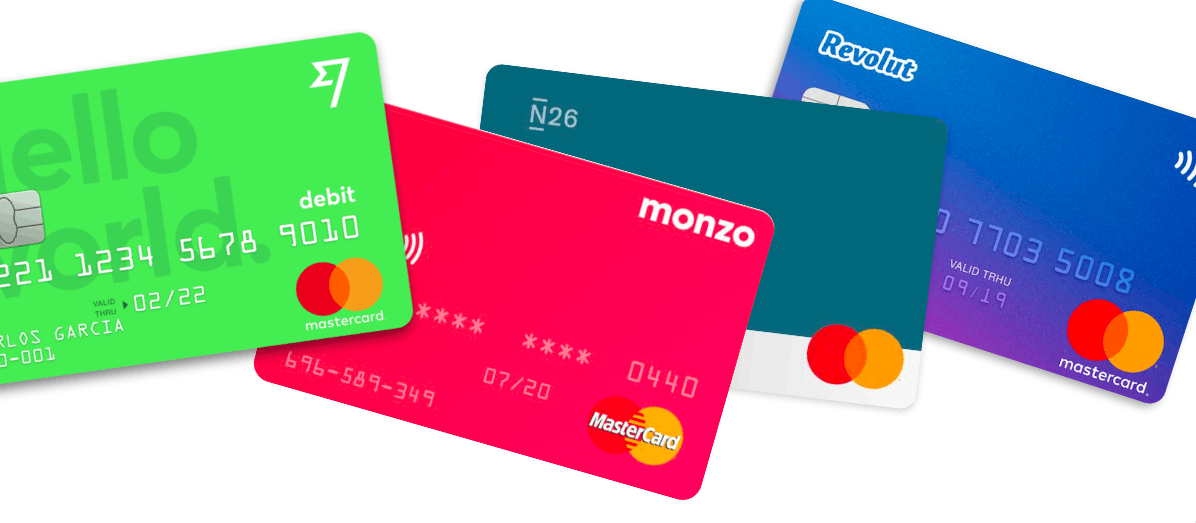
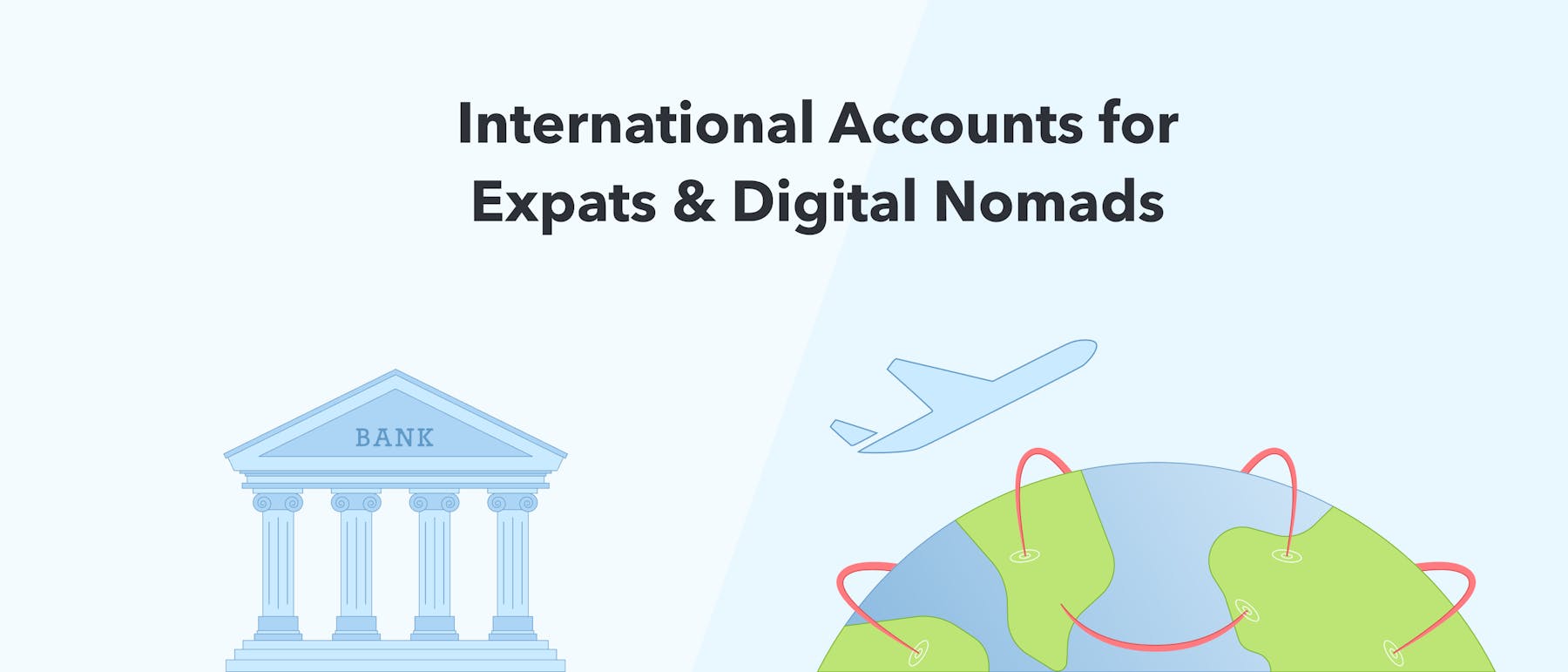

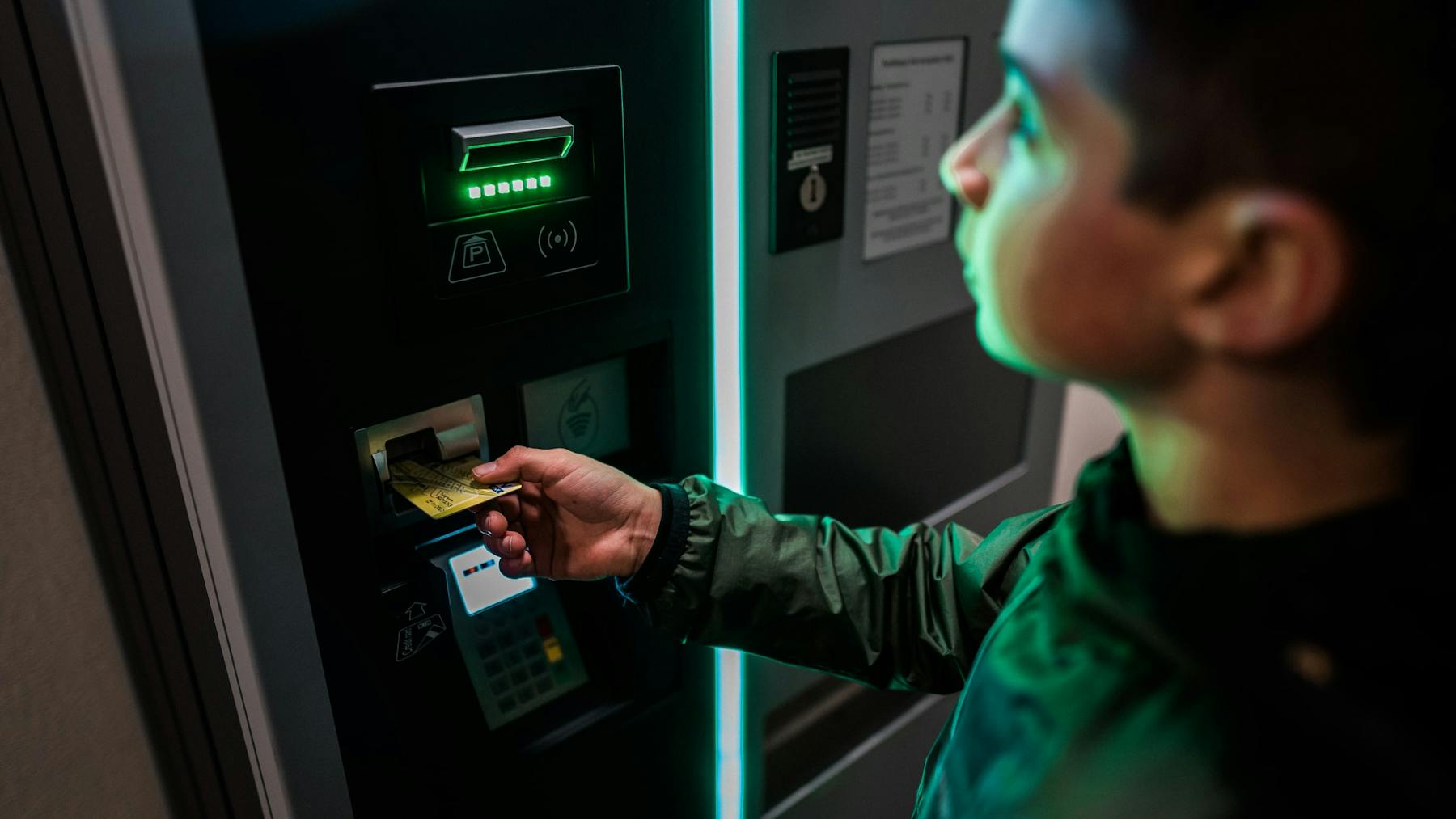
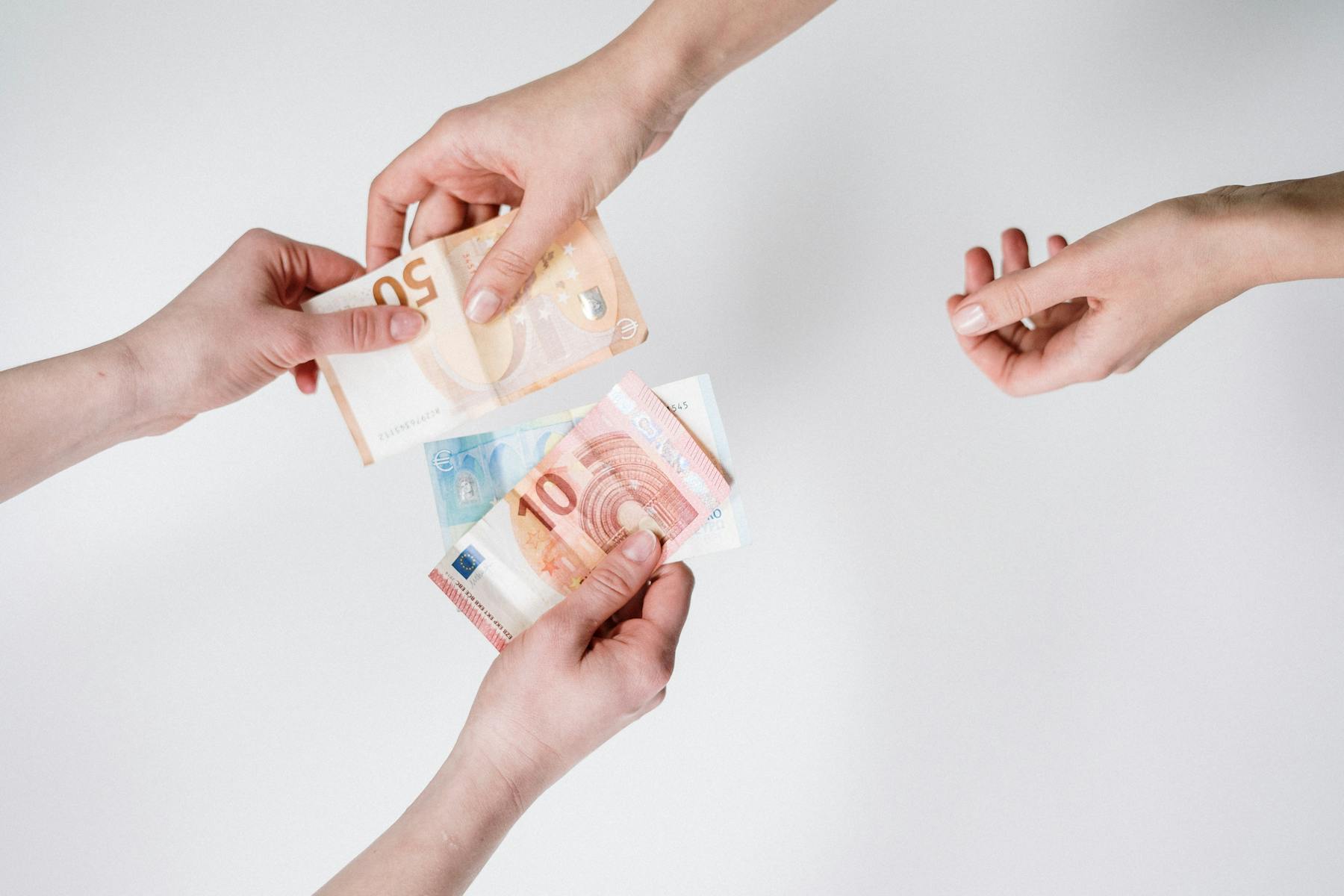
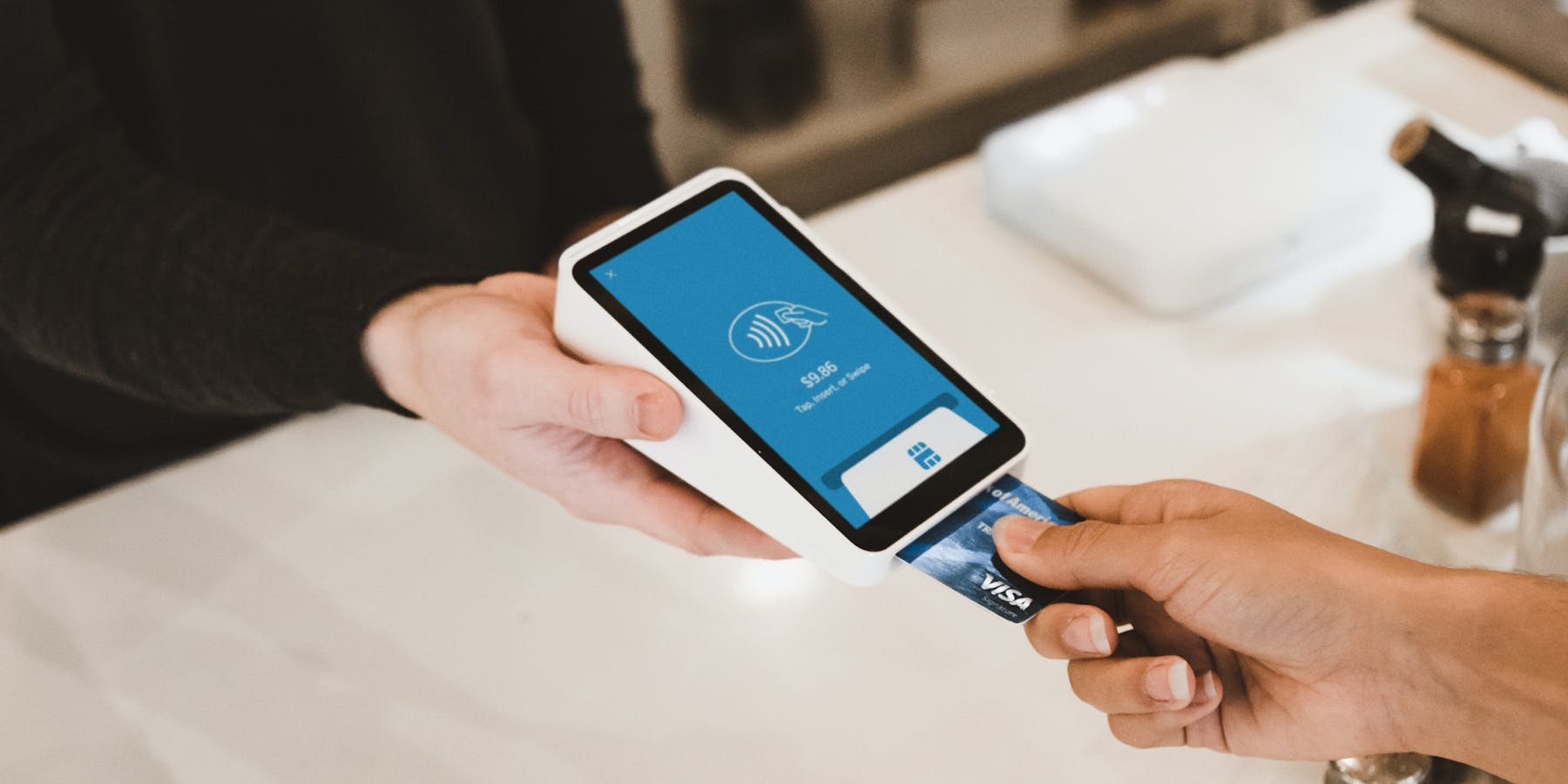
Why Trust Monito?
You’re probably all too familiar with the often outrageous cost of sending money abroad. After facing this frustration themselves back in 2013, co-founders François, Laurent, and Pascal launched a real-time comparison engine to compare the best money transfer services across the globe. Today, Monito’s award-winning comparisons, reviews, and guides are trusted by around 8 million people each year and our recommendations are backed by millions of pricing data points and dozens of expert tests — all allowing you to make the savviest decisions with confidence.
Monito is trusted by 15+ million users across the globe.
Monito's experts spend hours researching and testing services so that you don't have to.
Our recommendations are always unbiased and independent.
